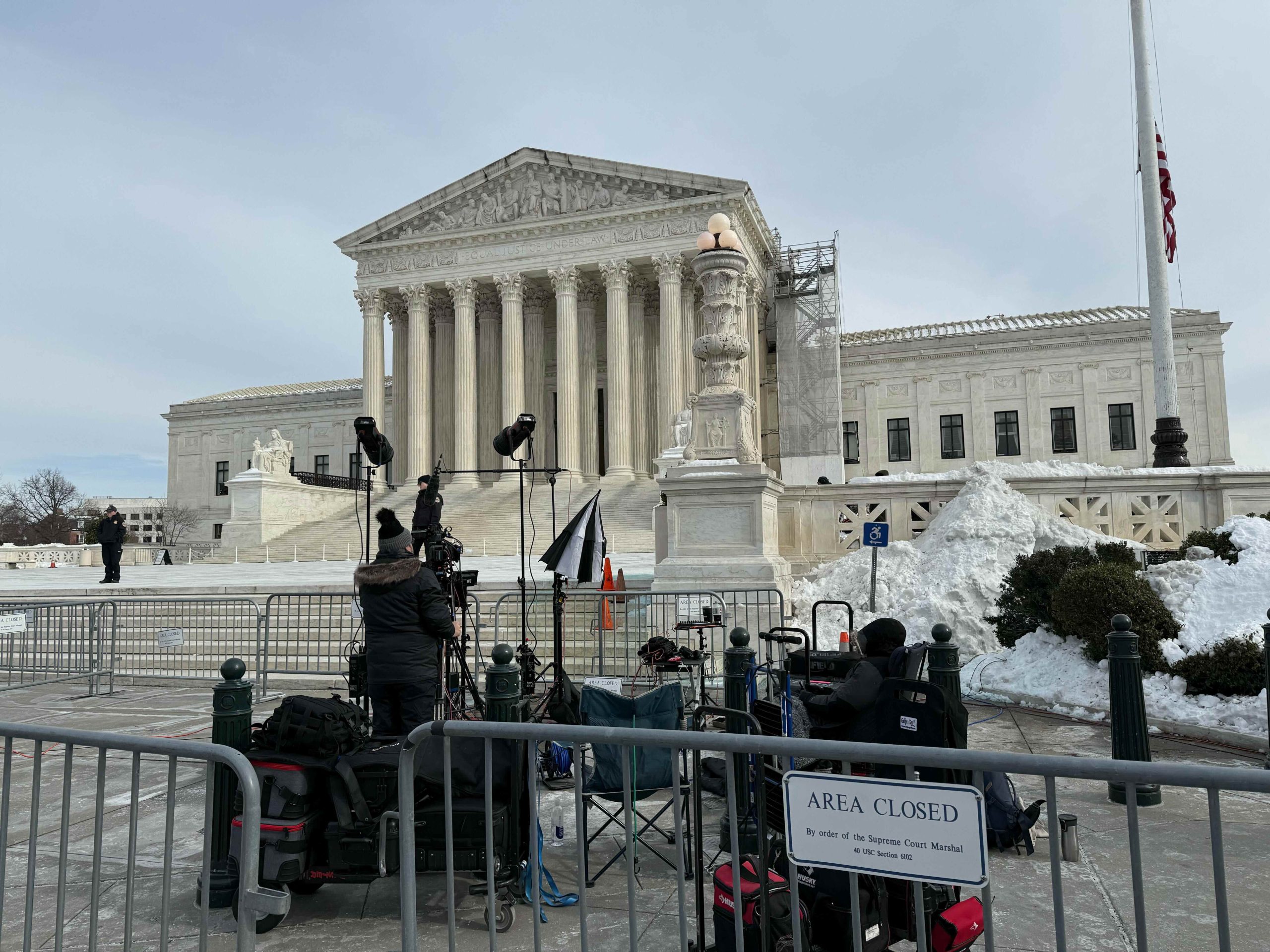Supreme Court Updates: New Cases for the 2024-25 Term
January 10, 2025
At 8:28 p.m.

The court on Friday added three cases to the case list for 2024-25. (Katie Barlow)
Overview of the New Cases
The Supreme Court recently added three notable cases to its docket for the 2024-25 term. These cases span a range of subjects, including challenges to federal policies related to healthcare, student loans, and tax hearings. Given the significance of each issue, these cases promise to shape discussions in their respective areas and may conclude the term’s legal landscape.
Becerra v. Braidwood Management
One of the most pressing cases added is Becerra v. Braidwood Management, which challenges the constitutionality of the U.S. Preventive Services Task Force. This task force is critical to the Department of Health and Human Services (HHS), as it provides essential recommendations for preventive health services. According to the Affordable Care Act (ACA), health insurance providers must offer certain preventive services for free to patients, thereby enhancing public health access.
The case has originated from objections raised by individuals and small businesses citing religious grounds, particularly regarding the ACA’s mandate to cover pre-exposure prophylaxis (PrEP) for HIV prevention. Legal representatives argue that the task force’s structure contravenes the Constitution’s Appointments Clause, necessitating that key officers be appointed by the president and confirmed by the Senate.
Lower Court Rulings and Implications
Both the district court and the U.S. Court of Appeals for the Fifth Circuit have ruled in favor of the challengers, asserting that the structure of the task force is unconstitutional. The Fifth Circuit acknowledged that while the HHS Secretary could remove task force members, the lack of oversight over their appointments was problematic. This ruling has invited significant concern from the Biden administration, which argues that the consequences of the Fifth Circuit’s decision could extend far beyond this case, impacting various federal health initiatives.
Department of Education v. State of Texas Career Colleges and Schools
The second case, Department of Education v. State of Texas Career Colleges and Schools, tackles issues surrounding student loan forgiveness, particularly for borrowers who have been defrauded by educational institutions. This case is significant in light of ongoing debates over transparency in student loan practices and protections for vulnerable borrowers. The Supreme Court is expected to consider the validity of a Fifth Circuit ruling that effectively halted the Department of Education’s loan forgiveness rule.
The justices have opted not to address whether a universal injunction should apply across the nation, leaving significant implications for how student loan cases are managed in the future. The surface of tension between the Biden administration’s educational policies and challenges from for-profit colleges continues to be a critical area of concern as litigation progresses.
Tax Hearing Case: Commissioner of Internal Revenue v. Zuch
Finally, the case Commissioner of Internal Revenue v. Zuch scrutinizes circumstances under which tax hearings might be considered moot. This case revolves around the question of whether ongoing disputes maintain relevancy in cases where the central controversy no longer holds ground. The implications of this case extend into how tax disputes are adjudicated and whether they require active engagement from the courts once they reach a certain point.
Looking Ahead: The Court’s Calendar
All three cases are slated to be heard in April, with verdicts anticipated by late June or early July. These decisions could have lasting impacts on the respective areas of law and public policy involved. Stakeholders across the board, from health professionals to students and taxpayers, are poised for significant developments as the Supreme Court navigates these complicated legal waters.
Conclusion
The addition of these three cases to the Supreme Court’s docket emphasizes the court’s ongoing role in shaping critical aspects of American life, particularly concerning healthcare, education, and federal tax law. Each case carries significant stakes for various demographics and highlights the complex interplay between federal regulations and individual rights. As these cases unfold, they will likely inform national conversations about rights, responsibilities, and the future of governmental authority.
FAQs
What is the significance of the Becerra v. Braidwood Management case?
This case questions the constitutional structure of the U.S. Preventive Services Task Force and affects the implementation of the Affordable Care Act’s provisions regarding preventive health services.
Why is student loan forgiveness being challenged in the Supreme Court?
The case relates to the Department of Education’s efforts to provide relief to borrowers who have been defrauded or misled by educational institutions, an area of increasing scrutiny amidst rising student debt levels.
What does the tax hearing case entail?
The Commissioner of Internal Revenue v. Zuch case deals with whether tax disputes can remain active in courts if they no longer represent a legitimate controversy.
When will the Supreme Court hear these cases?
The cases are scheduled for oral arguments in April 2025, with anticipated decisions expected by late June or early July of the same year.

